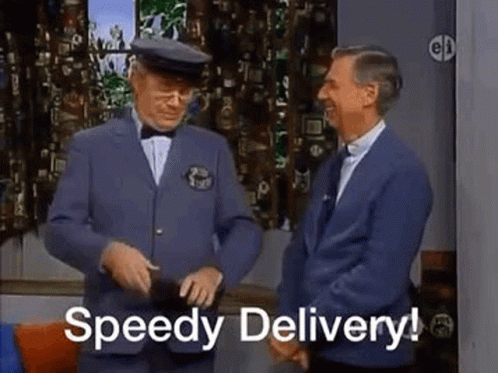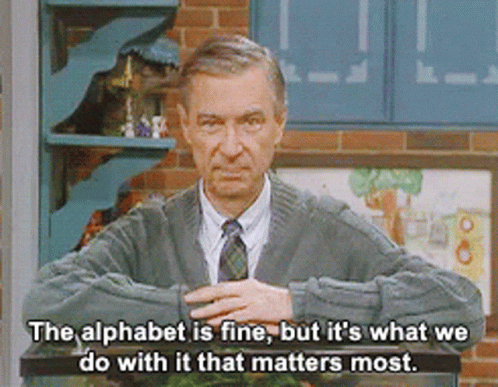This is a brief interlude before we return to our regularly scheduled programming of understanding authoritarianism and saving democracy. Last weekend I had the lovely opportunity to facilitate a small workshop at my church about what it means to be a neighbor. I want to share a bit about it here because it’s had me thinking—about the Table, about democracy—from a new angle.
For context: it seems to me that in the church and in progressive society, the word “neighbor” is used so abstractly as to lose most of its meaning. Progressives earnestly quote Mister Rogers about inclusion and the essential specialness of every person, sometimes forgetting that it’s our job as adults to concretize and apply his messages, which were…designed for small children.

And in the church, “neighbor” is made to extend (as I believe it does extend, in a way) to every person in the entire world. It’s hard to “love your neighbor as yourself” meaningfully when you have eight billion neighbors. I’ve also noticed that in the church—despite Jesus' insistence that the right question isn't “who is my neighbor/whom do I have to love?” but “what does it mean to be a good neighbor?”—we still primarily use “neighbor” to describe others, not ourselves. AND FURTHERMORE we often use “neighbor” as a synonym for “needy person we can help.” We’re not the neighbor; they are.
This is all really odd. While we can use “neighbor” figuratively, it also has an extremely concrete meaning. Every one of us has literal neighbors—people we live in literal proximity to, share literal space and other resources with. It occurred to me, in prepping for this workshop, that spending some time thinking about the literal neighbor relationship could pin down and deepen how we think about “loving our neighbors” (and, of course, what that means for citizenship).

During the workshop, we spent some time talking about the specific ways we interact with our literal neighbors, what annoys us about each other, how ownership affects the neighbor relationship, and how this all might apply to our more diffuse Love For Neighbor. It was a great conversation! We realized that the neighbor relationship is…
- unchosen: For the most part, you can’t select your neighbors. They’re not family, exactly, but they’re not (usually) the people you’d choose if you could design the perfect friend group.
- unavoidable: You’re sensorily attached: you might see each other at the mailbox every evening, smell each other’s cooking, hear each other’s dogs. You cannot opt out of this.
- intimate: My neighbors see me in way more disarray than do even my closest friends, and I know they’ve heard me or my kids yelling or crying. I’ve heard their kids’ worst tantrums—the ones they only have at home. This can be hella awkward but is also beautifully humanizing.
- practical: Our neighborhood text thread is fully 50% “does anyone have 2 eggs im in the middle of a recipe ahhh.” We help each other with little urgent needs all the time.
- reciprocal: All of the above works both ways. I didn’t choose them…and they didn’t choose me. As much as I would like to style myself The Neighborhood’s Best Neighbor, I’m not. (Jonathan is.) My dog is loud! I’m often in too much of a hurry to say a decent hello! My sixteen-year-old parks an SUV two feet from the curb on a narrow street! If you have a modicum of self-awareness, it is impossible to believe that your footprint in your neighborhood is exclusively positive…which engenders some humility. When you’ve been the one texting the group to beg eggs on Actual Christmas Day, you realize that you’re one part of a system that’s carrying everyone. Some days you’re contributing, and some days you’re asking for a handout.
I don’t think I need to draw many connection lines here, except to say: because I’m American / white / relatively wealthy / highly educated / not disabled / slightly cocky, it’s easy for me to view myself as The One With Something To Give. And I do have something to give! And also, I receive—from my literal neighbors and from my “neighbors” around the country and the world—constantly. With that paradigm shift, something like active citizenship or donating money isn’t “giving;” it falls somewhere between “giving back” and…just being a responsive neighbor. NBD.

What do you think? How does using the frame of literal neighbors help you think about participation in the (sorry) global neighborhood?
Back to authoritarianism next weeeeeek! xoxo

Member discussion: